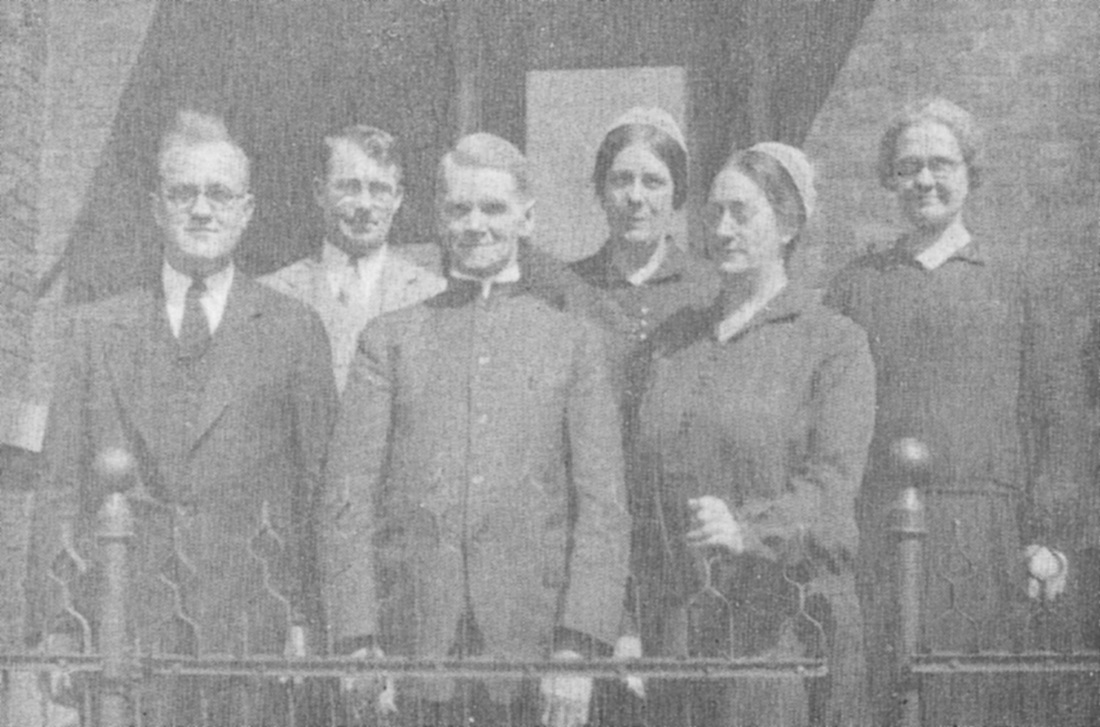|
Born in Kentucky, lived in Illinois. No, this bio is not about President Lincoln but someone also worthy of our attention: Roy Buchanan. Mr. Buchanan arrived in Northern Illinois as a destitute teenager looking for work, farming, construction, or anything that might be available. He found work and so much more: a meaningful faith.
Roy worked for Mennonite farmers in Woodford County, Illinois for 6 summers. With the money he saved, bought a farm in Arkansas which flooded and he lost everything. In his despair, returned to Woodford County and resumed his work with Mennonite farmers. As he would write later, “I could feel more at home in this community, enjoying the rich Christian fellowship that was mine…and so I joined the Mennonite Church.” Then World War I broke out and he was drafted. Roy requested Conscience Objector status and was interred in a military camp where he and other CO’s were suffered indignities and maltreatment. In the Camp Leavenworth military camp, he witnessed unspeakable cruelty toward Black conscripts and was deeply troubled by this. For example, one day 35,000 people showed up to witness the hanging of three Black conscripts for a minor infraction. “How cruel and stone-hearted can some people get?” was the question that haunted Roy for the remainder of his days. But that was only the beginning of his experience with human cruelty. Eventually, Judge Harlan Stone learned of Roy’s request for Conscientious Objector status and offered him an agricultural deferment instead. Roy pleaded, instead, for an appointment with the American Friends Service Committee aid the victims of war in Europe. He completed his application to AFSC and three recommendation forms were submitted by the following members of the Metamora Mennonite church: Peter Graber, Andrew Schrock and Sam Unzicker. On the recommendation form Unzicker penned, “(Roy) worked for me for six years and he is one of the most moral young men I have ever met.” AFSC sent him to France where he saw first-hand the devastation of caused by the war. In his memoir he wrote, War is cruel! War is tragic! War can lead to the lowest depths of human degradation. More than fifty years have passed since I spent two years exposed to the tragedies of war and the memories of those months linger indelibly. If I should live to be a thousand years old and my mind stay rational I would not forget those events. After the war, Buchanan returned to Illinois and worked with the Chicago Mennonite Mission located on Union Street (near today’s China town). Then Moody Bible Institute hired him to install their radio station and he was their primary engineer for six years. Then hard times came again. In 1931, during the Depression, he lost his job and, since Mennonites were also facing difficulties, they were unable to assist. Eventually in 1933 he wrote a letter to the American Friends Service Committee outlining his need for a loan of $50 to tide him over through the winter. There is no record of AFSC’s response but we can assume that somehow, somewhere funds were located. After World War II he worked for local newspapers in the Metamora, Illinois area and he began to write his own memoir which covers his work with the Chicago Mennonite Mission, his opposition to war, relief efforts immediately after World War I and employment with Moody radio station in Chicago. Although he worked in a variety of jobs throughout his long life, he considered the years he spent serving the needs of others, especially the victims of war and the poor of Chicago to be his small ‘footprint’ on the world. Surely the Lord would say of Roy Buchanan, well done though good and faithful servant. Sources:
Photo source: Illinois Mennonite Heritage Center, Metamora, Illinois. |
DownloadThe Living Mirror: Archaeology of Our Faith
Archives
December 2018
|
||||||
|
* = login required
|
Visit425 S. Central Park Blvd.
Chicago, IL 60624 |
Contact |


 RSS Feed
RSS Feed
